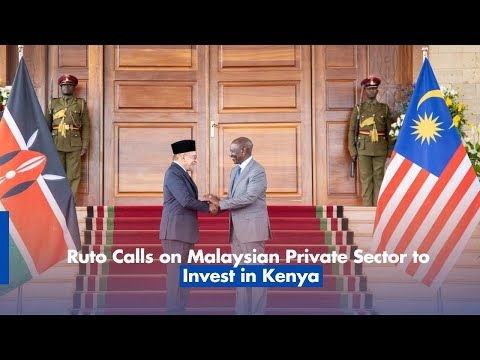Margaret Thatcher was British Prime Minister in the 1980s. The first woman Prime Minister of that country – a tough lady sometimes described as the only man in her Cabinet.
Thatcher was fond of referring to what she called “housewife economics”. It was not hustler economics which seems to be about what the country can do for hustlers, but about what a housewife could do for the country.
As a writer in 2013 put it – she would suggest that that she would “run the national budget like a household budget, thriftily and efficiently, spending only what the country could afford and being sure to get value for money from public spending.”
This was greeted with a bit of derision. But I have to say that I have recently been feeling a bit of sympathy for it. It seems that what happens in Kenya is the direct opposite of spending only what the country can afford and being sure to get value for money from public spending.
Most recently, the news item that inspired this reflection was that Kenya had the fourth largest delegation in the world to the CoP27 climate change conference in Egypt. The Nation said it was 386 strong, of whom 293 were from the national government.
What could 293 people from the national government have been doing that would justify the expense of sending them (not to mention the contribution to climate change constituted by all those flights)?
On the same day the Standard reported that state agencies were busy ordering things that do not sit well with the President’s directives on austerity – like cut flowers.
It seems that hardly anyone takes seriously the need to apply housewife economics to public expenditure. Public money is for eating – or simply for wasting.
It is not necessarily a question of corruption. We are accustomed to hearing people such as former President Uhuru Kenyatta telling us Sh2 billion a day is stolen. We know that routinely, prices of goods publicly acquired are inflated by perhaps 30 per cent to accommodate the greasing of palms that seems to be a necessary part of procurement.
But how about the money that is simply wasted?
It sometimes seems from the news that the country is littered with incomplete project – markets and stadiums particularly, but also hospitals and even governors’ mansions. Sometimes corruption may be involved (if work is given to useless contractors, for example, maybe the reason for choice of contractor is corrupt) but not all foolish and irresponsible decisions are corrupt.
If we added to the money that is stolen the cash that is simply wasted, what percentage of our national resources would be shown to be lost?
Expenditure on equipment that is left to gather dust (including laptops for schoolchildren and medical equipment in hospitals), because no-one knows how to use it, or it cannot be used because there is no connection to electricity; embarking on projects that turn out to be too prohibitively expensive to finish; allowing our national resources to deteriorate for lack of maintenance; unnecessary staff employed – and sitting around twiddling their thumbs; useless foreign trips; equipment being kept insecurely so it is stolen or vandalised; the number of white elephants probably exceeds the number of real jumbos in our national parks.
Is it improbable that half of our financial resources are lost, stolen or strayed?
Somehow the sense of trusteeship of public money is missing. One can understand it if people with little education imagine that government just prints money so it is unlimited. But people in public office must know better. Every shilling comes from taxes –paid by us all – or borrowed money (for which we must ultimately pay) or money given, not as a loan, by foreign governments or other agencies – for the people of Kenya. And every shilling that is wasted is a shilling less to be used for the benefit of the people. Just because this money may not end up in the pockets of corrupt individuals does not mean this is not a serious matter.
CONSTITUTION AND LAW
The Constitution says that public money must be “used in a prudent and responsible way” (Article 201(d)). And Article 232 includes “efficient, effective and economic use of resources”. Both of these are principles, and the courts have not always been able to find a way to give principles in the Constitution some “bite”. In the two-thirds gender principle case, the Supreme Court talked of “general statements of policy and principle [that] inspire the development of concrete norms for specific enforcement.”
We might expect “concrete norms for specific enforcement” in the Public Finance Management Act. In fact, this is not its main function. True it uses the word prudence or prudent but mostly in connection with borrowing and financial risk. It does mention that counties must pass law requiring urban areas and cities to exercise prudent financial management more generally. But national and county governments are surely equally in need of this warning.
There is an Accounting Standards Board that is supposed to set standards for public institutions to promote transparency and other Constitutional values and principles in effective, prudent and efficient management of revenue, expenditure, assets and liabilities.
And there is an Act of Parliament supposed to ensure the Public Service respects the constitutional values. It says a public officer must use public resources in an efficient, effective and economic manner, which means (in part) using them in a prudent manner – which does not advance our understanding much.
Politicians (including Cabinet secretaries and governors) are not included in the public service for this purpose.
THE HOUSEWIFE’S GUIDE
I can’t help feeling that government – and therefor people – would benefit from the housewife’s guide to prudence in financial management. How should we decide what we really need? How to decide priorities if we cannot satisfy all demands – how do we choose between water and education, for example. How do we ensure we factor in all the relevant considerations – like do we have what is needed to operate this project (like electricity, water)? How do we consult the public so as to avoid having our project stopped because we have not had adequate public prosecution – a not unusual event? Do we know that we shall be able to maintain the project – are spare parts available, how much will this cost?
ACCOUNTABILITY FOR WASTAGE?
Accountability is a national value (Article 10). So how are the resource wasters held to account?
The Constitution says that if a public officer, including a political office (such as a Cabinet Secretary) directs or approves the use of public funds against the law or against legitimate instructions, the officer must make good the loss. This is concerned basically with illegality rather than unwisdom, extravagance and waste.
However, the Public Finance Management Act actually creates a criminal offence of incurring wasteful expenditure on behalf of the government or public entity for which the person works (Section 197(1)(l)), and the penalty is five years or a fine not more than ten million shillings, or both.
To waste public resources is to violate the Constitution. Even if a person is not held to have committed a criminal offence, this wastefulness might be used as part of a push to remove a public officer. Impeachment of the President or a governor may be for “gross violation” of the Constitution. Serious wastefulness might amount to gross violation. But of course impeachment is as much a political matter as a matter of law, or even more refusal to impeach is a matter of politics.
Parliament also has the power to require the President to dismiss a Cabinet secretary for “gross violation of the Constitution, and county assemblies have a similar power over members of the county executive.
As a final thought: should not accountability for those who make expensive trips at public expense include an obligation to give a report on what they did on that trip to justify the expense – which ought to be available to the public?














